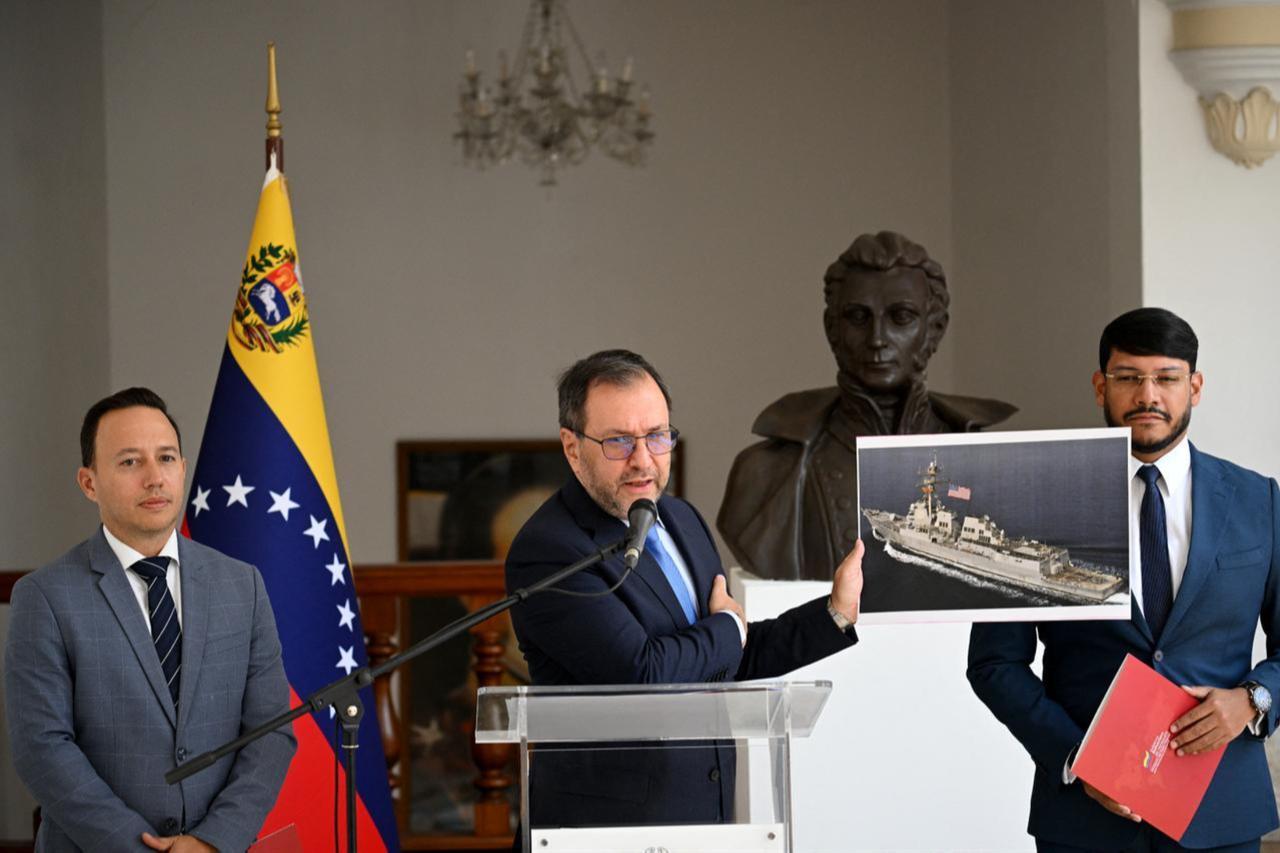
The Venezuelan president claims Washington is targeting his country with unfounded allegations amid a growing U.S. military presence in the Caribbean.
Venezuelan President Nicolas Maduro said Friday that the United States is “inventing a new eternal war,” amid escalating tensions following U.S. military operations against alleged drug-running boats in the Caribbean.
“The people of the United States know it; they are inventing a new eternal war,” Maduro said in Caracas.
“They promised they would never get involved in another war, and now they are inventing a war that we are going to prevent. How? By mobilizing the peoples of South America,” he added.
Maduro said Venezuela is free from coca leaf production and accused Washington of targeting his country with exaggerated and unfounded allegations.
He also announced that Venezuela had deployed 5,000 Russian-made Igla-S anti-aircraft missiles to strengthen its air defense capabilities.
The statement came as Caracas views the U.S. military buildup in the Caribbean as a direct threat aimed at promoting “regime change.”
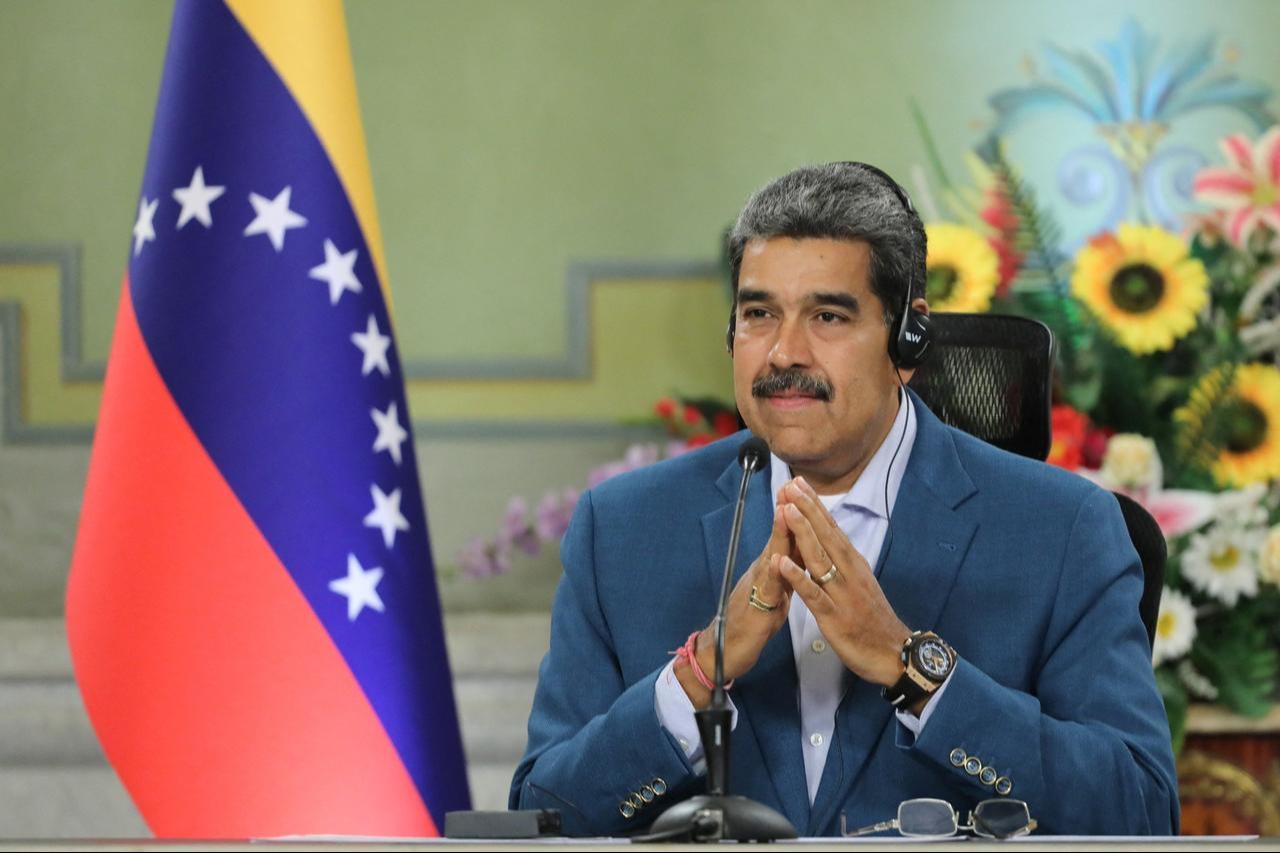
Brazilian President Luiz Inacio Lula da Silva criticized the U.S. military presence in the Caribbean, urging Washington to end its interventionist policies toward Latin America.
Speaking to reporters at Indonesia’s Merdeka Palace, Lula condemned U.S. operations against countries such as Venezuela and Colombia carried out under the pretext of fighting drug trafficking.
“Before accusing anyone, there must be proof. No country should conduct operations on foreign soil by disregarding the constitution and destiny of other nations,” Lula said.
He emphasized that cooperation through judicial and security institutions would be more effective than military involvement. “If the U.S. is willing to engage in dialogue with our police and justice institutions, we would achieve much better results,” Lula said, calling U.S. policies interference in regional affairs.
Lula also expressed his intention to meet with U.S. President Donald Trump during the upcoming ASEAN Leaders Summit in Kuala Lumpur, saying trade tariffs and economic fairness would be on the agenda.
“Latin America no longer wants to see occupation. Our region needs respect, justice, and cooperation,” he said, opposing any possible U.S. military intervention in Venezuela.
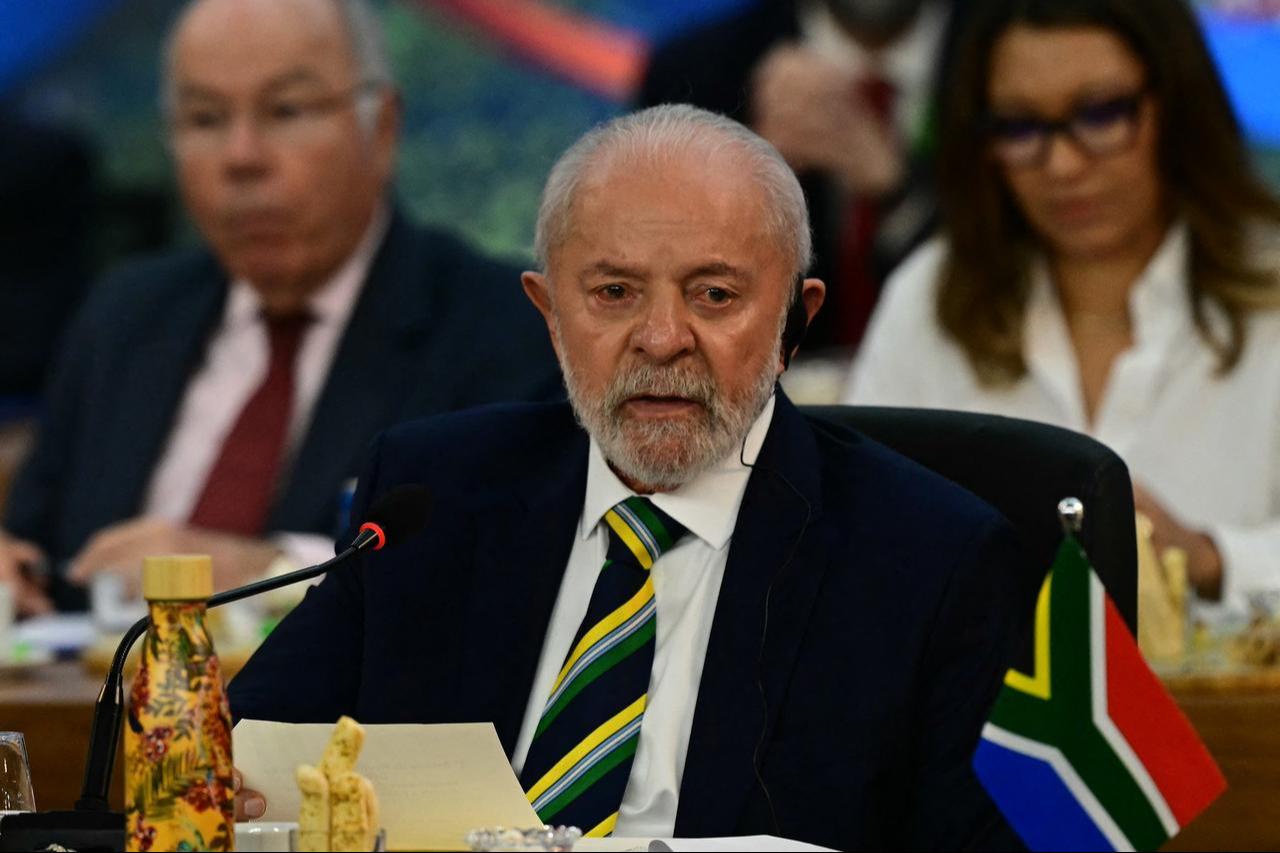
Amid the mounting tensions, U.S. Secretary of War Pete Hegseth announced that the Gerald R. Ford aircraft carrier strike group has been deployed to the U.S. Southern Command area of responsibility “to dismantle international criminal organizations and combat narco-terrorism.”
Pentagon spokesperson Sean Parnell said on X that the move followed President Trump’s directive to expand military operations against drug cartels. The Gerald R. Ford, the world’s largest aircraft carrier, carries over 5,000 personnel and more than 75 fighter jets.
Hegseth said the U.S. military also attacked a boat allegedly transporting narcotics in the Caribbean, killing six men. He stated the operation targeted a vessel operated by the Tren de Aragua gang, designated by Washington as a foreign terrorist organization.
“The attack was conducted in international waters at night. All six narco-terrorists were killed, and no U.S. personnel were injured,” Hegseth said, sharing footage of the strike on social media.
President Trump earlier signed an order authorizing expanded military operations in Latin America against drug cartels and hinted that “a ground operation targeting Venezuela” could soon take place.
Since late summer, the U.S. has deployed eight warships—including three Arleigh Burke-class destroyers, three amphibious assault ships, a cruiser and a littoral combat ship—to the region, supported by Marine units, drones, and fighter aircraft.
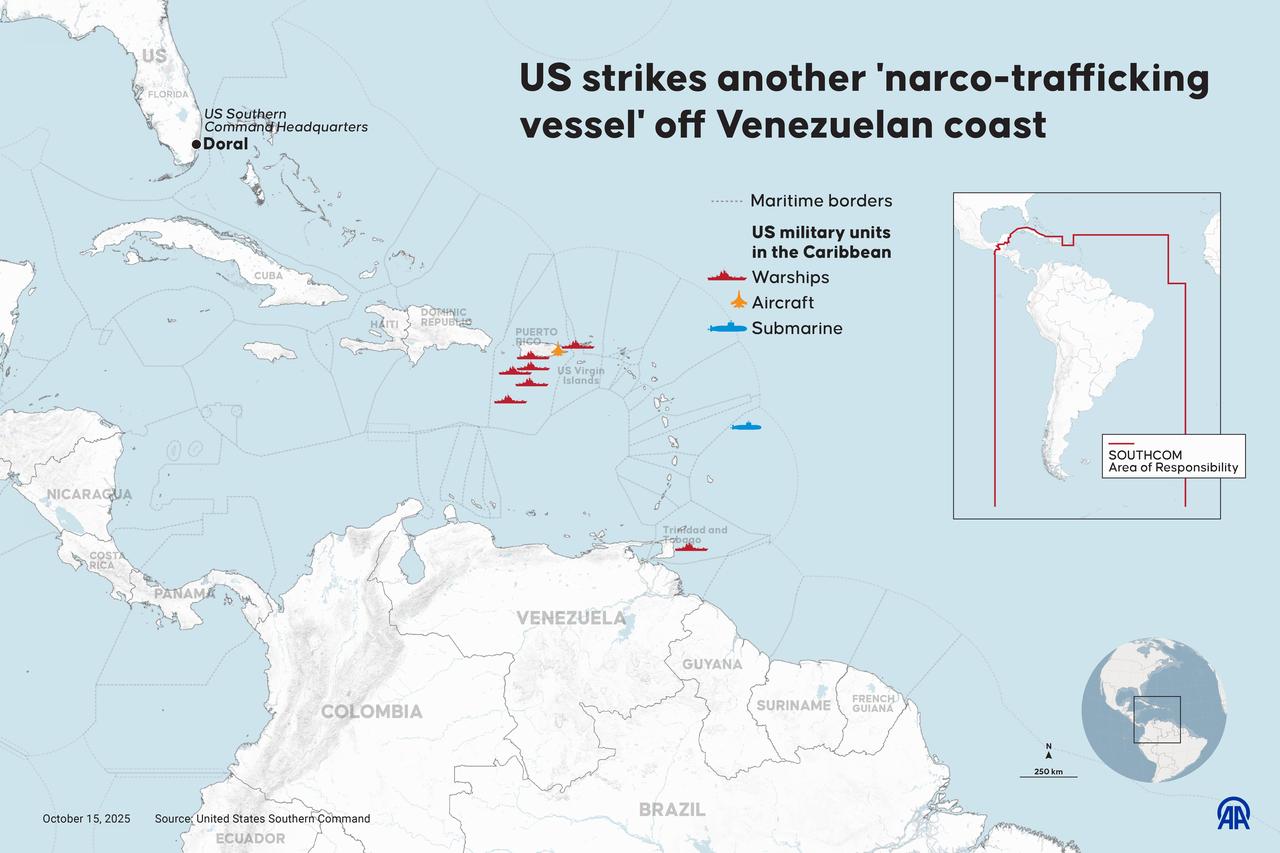
Venezuela’s government condemned the U.S. military buildup as a violation of international law.
In response, Maduro said the country has mobilized 4.5 million militia members “ready to defend the nation against any aggression.”
U.S. operations targeting boats in the Caribbean under the pretext of drug trafficking have drawn criticism from international legal experts and regional leaders.
Maduro reiterated that his government would prevent “a new eternal war” in South America through unity and mobilization across the region.
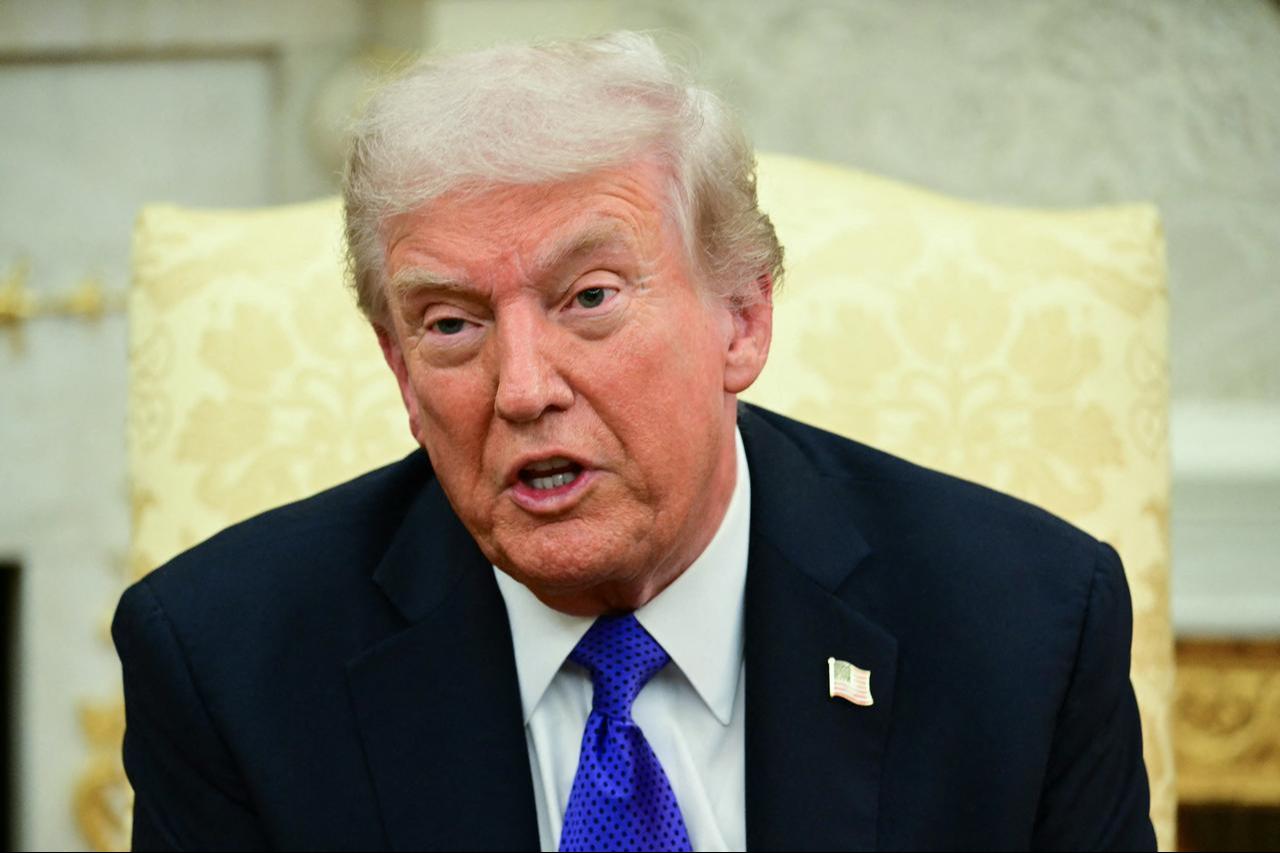
Colombian President Gustavo Petro also responded to U.S. President Donald Trump, who labeled him an “illegal drug leader.”
“(Mr.) Trump has no idea who I am, what I think, or this country’s history. He doesn’t even have a clear idea where Colombia is,” Petro told supporters gathered at Bogotá’s historic Bolivar Square.
He said Trump’s statements showed ignorance of Colombia’s fight against drug cartels. “(Mr.) Trump, I know these words won’t reach you because only the voices of the Colombian mafia reach you,” Petro said.
Petro also rejected Washington’s decision to impose sanctions on him, his family, and government officials. “I have no assets in the United States, no accounts to freeze, and no business interests there,” he said.
The U.S. Treasury Department had announced sanctions against Petro, his wife Veronica del Socorro Alcocer Garcia, his son Nicolas Petro, and Interior Minister Armando Benedetti, accusing them of enabling increased cocaine production.
Trump said Petro’s government allowed drug activity to expand and that Washington would suspend all payments to Colombia while reassessing bilateral relations.
Petro denied the accusations, emphasizing that he had led “the strongest fight against drug cartels” in Colombia’s recent history.